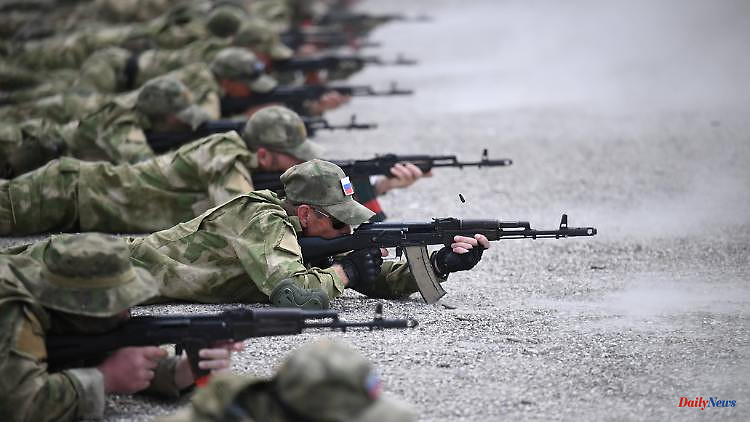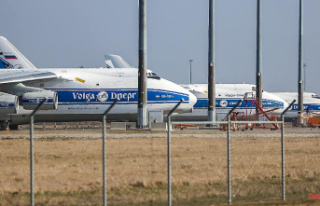According to Western estimates, Russia may have already lost up to 80,000 soldiers in its attack on Ukraine. In order to maintain the fighting strength of its army, the Kremlin relies primarily on volunteer fighters. But they report that promises and harassment have not been kept.
For the past six months, Russian and Ukrainian troops have been fighting a deadly attrition. However, the Kremlin wants to avoid a general mobilization of the population. Instead, he relies on volunteer battalions from almost all parts of the country, who risk their lives at the front for a few thousand dollars apiece. But many promises made by the responsible authorities are apparently not being kept. In new reports, volunteer fighters complain about the way the Russian military is treating them, the US Institute for War Studies summarized in its latest situation report.
For example, Radio Free Europe/Radio Liberty reports in its Russian edition that the fighters recruited for their deployment in Ukraine have received, among other things, less pay, food, ammunition and cigarettes than promised. No funerals were organized for the dead. Volunteer units that survived their deployment and whose contract with the military or defense ministry had expired are said to have been abandoned in remote regions of Russia on the way home.
The report quotes a fighter who, after his deployment, was taken with other volunteers to a Russian military camp on the Ukrainian border in the Rostov region to collect his documents after two months of service. After handing over phones and passports, the officer showed them the direction to the highway ten kilometers away and left. The men then set off with no cash in their pockets. Later, a truck stopped and "at least brought them back to civilization," they say. Accordingly, it was not the first time that he had collected volunteer fighters on the side of the road, the driver of the truck reported to the soldier.
According to the report, some of the fighters also received less money than promised. Others are said to have found after a visit to the bank that no transfers from the military or other responsible authorities had been received in their accounts.
The problems are therefore not limited to payment, but also affect the operation itself. There is a lack of uniforms, weapons, ammunition, food rations and military expertise. According to the report, a former police officer was the company commander of the men in Ukraine who had never held a weapon in his hand and was expelled from the service. It is said that he was not interested in combat tactics. The situation is said to have been similar in other volunteer battalions.
The men allege that they were mistreated because they were not part of the regular Russian troops. However, a report in the online newspaper "Nowaya Gazeta Europa" shows that the situation for contract soldiers is no less dire. There, a young soldier reports that in the first weeks of the war it was common practice for soldiers to refuse to fight. From his approximately 80-strong battalion, around 30 soldiers are said to have terminated their contract by mid-March. That's why there weren't any problems, he says.
According to the information, Russian soldiers are allowed by law to terminate their contract for "valid reasons" such as health and family. According to a Russian defense law expert quoted in the report, this includes the "development of anti-war beliefs."
Five months later, however, the refusal is to be severely punished, unlike at the beginning of the war. Accordingly, internment camps for contract soldiers who no longer want to fight have been set up in occupied Ukrainian areas such as Popasna or in the Luhansk region. There is talk of up to 2,000 affected military personnel who are being "re-educated" in "menial work". According to the report, vacation is also no longer approved, although the number of vacation days still available for many soldiers already exceeds the days until the end of the contract period.












